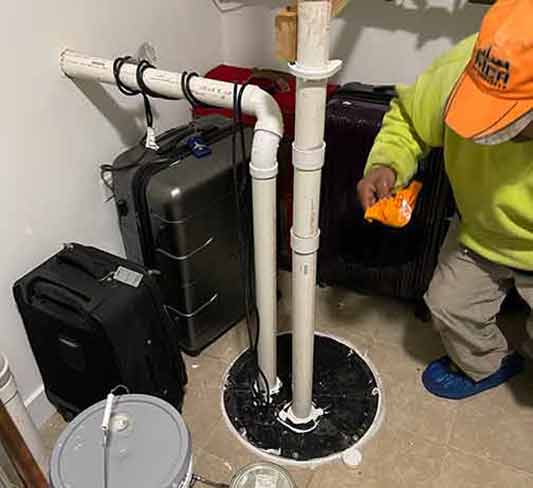
Chicago, known for its stunning architecture and vibrant city life, is also prone to heavy rainfall and flooding. Homeowners in Chicago often face the challenge of safeguarding their properties from the damaging effects of floods. Residential flood control systems offer a reliable solution to protect your property and provide peace of mind during inclement weather. Below we will explore how these systems work and why they are crucial for homeowners in Chicago.
The Importance of Flood Control Systems
Living in a city like Chicago means being prepared for extreme weather conditions, and floods are a common occurrence due to heavy rainfall and the proximity of the city to Lake Michigan. Floodwater can cause significant damage to homes, leading to costly repairs and emotional distress. Having a reliable flood control system installed can prevent or minimize the damage caused by flooding.
How Residential Flood Control Systems Work
Residential flood control systems are designed to protect homes from the ingress of floodwater. These systems typically comprise a combination of preventative measures and flood mitigation techniques. Here are some key components of an effective flood control system:
Sump Pump
A sump pump is a crucial component of a residential flood control system. A sump pump is installed in the basement or a lower level of the property and works by pumping out excess water that accumulates in the sump pit. When the water level rises above a certain point, the sump pump activates and removes the water, redirecting it away from the property.
Backwater Valve
A backwater valve is another essential element of flood control systems. It is installed in the sewer lateral line and prevents sewer water from flowing back into the property during heavy rain or flooding. The valve automatically closes when water starts flowing backward, ensuring that floodwater does not enter the home through the sewer system.
Flood Barriers
Flood barriers are physical structures that create a barrier between floodwater and the property. These barriers can be permanent or temporary, depending on the specific needs of the homeowner. Permanent flood barriers, such as concrete walls or raised foundations, offer long-term protection. Temporary barriers, such as sandbags or inflatable barriers, can be deployed when a flood event is imminent.
Drainage Systems
Proper drainage systems are crucial for effective flood control. They ensure that rainwater is directed away from the property, reducing the risk of flooding. This can include measures such as installing French drains, downspout extensions, or rainwater harvesting systems.

While installing a flood control system may require an initial investment, it can save homeowners significant amounts of money in the long run.
Benefits of Residential Flood Control Systems
The investment in a residential flood control system can yield numerous benefits for homeowners in Chicago:
Property Protection
The primary benefit of flood control systems is protecting your property from the damaging effects of floods. By preventing water from entering your home, these systems safeguard your belongings, structure, and foundation.
Financial Savings
While installing a flood control system may require an initial investment, it can save homeowners significant amounts of money in the long run. Flood damage can result in expensive repairs and replacement of belongings. By investing in preventative measures, homeowners can avoid these costly expenses.
Peace of Mind
Living in an area prone to flooding can cause stress and anxiety. Having a reliable flood control system in place provides peace of mind, knowing that your property is protected, even during heavy rainfall or flooding.
Increased Property Value
Homes equipped with flood control systems are highly desirable in flood-prone areas. Having these systems in place can increase the value of your property as prospective buyers recognize the added protection and peace of mind they offer.
Choosing the Right Flood Control System
When it comes to selecting a flood control system for your home in Chicago, it is essential to consider various factors:
Professional Assessment
Speaking with a professional flood control expert is crucial to determine the specific needs of your property. They can assess the potential risks and recommend the most suitable flood control system for your home.
Quality and Reliability
Ensure that the flood control system you choose is of high quality and built to last. Investing in reliable components and systems will provide long-term protection for your property.
Compatibility
Consider the compatibility of the flood control system with your property. Factors such as the size of the property, basement layout, and existing drainage systems should be taken into account.
Maintenance and Support
Find out about the maintenance requirements of the flood control system and whether there is a reliable support system in place. Regular maintenance is crucial to ensure optimal performance and prevent any issues during heavy rainfall or flooding.
Investing in a residential flood control system is a wise decision for homeowners in Chicago. By safeguarding your property from flooding, these systems protect your investment, provide financial savings, and offer peace of mind. When choosing a flood control system, consider professional assessments, quality and reliability, compatibility with your property, and the availability of maintenance support. With the right system in place, you can face heavy rainfall and potential flooding in Chicago with confidence.